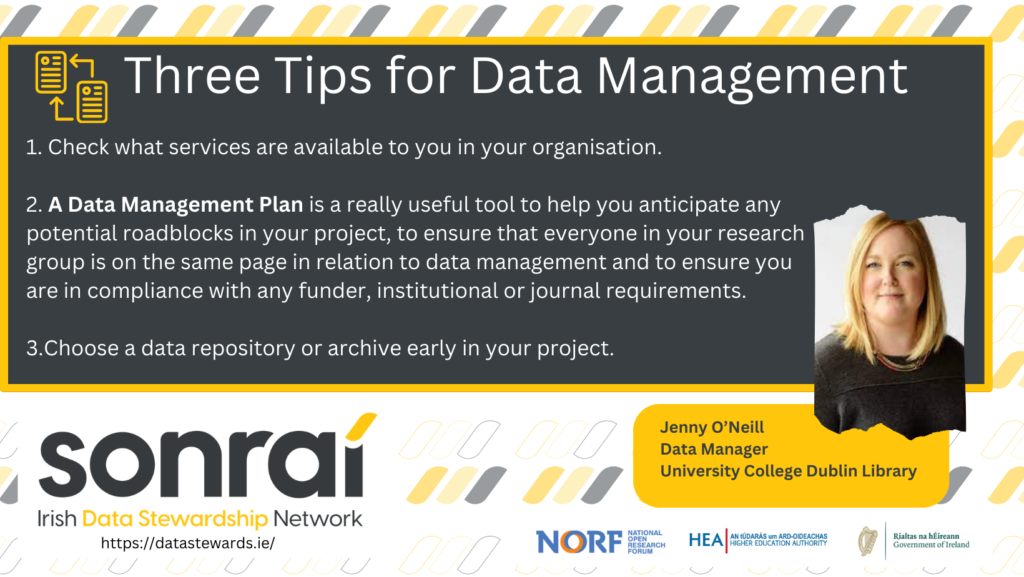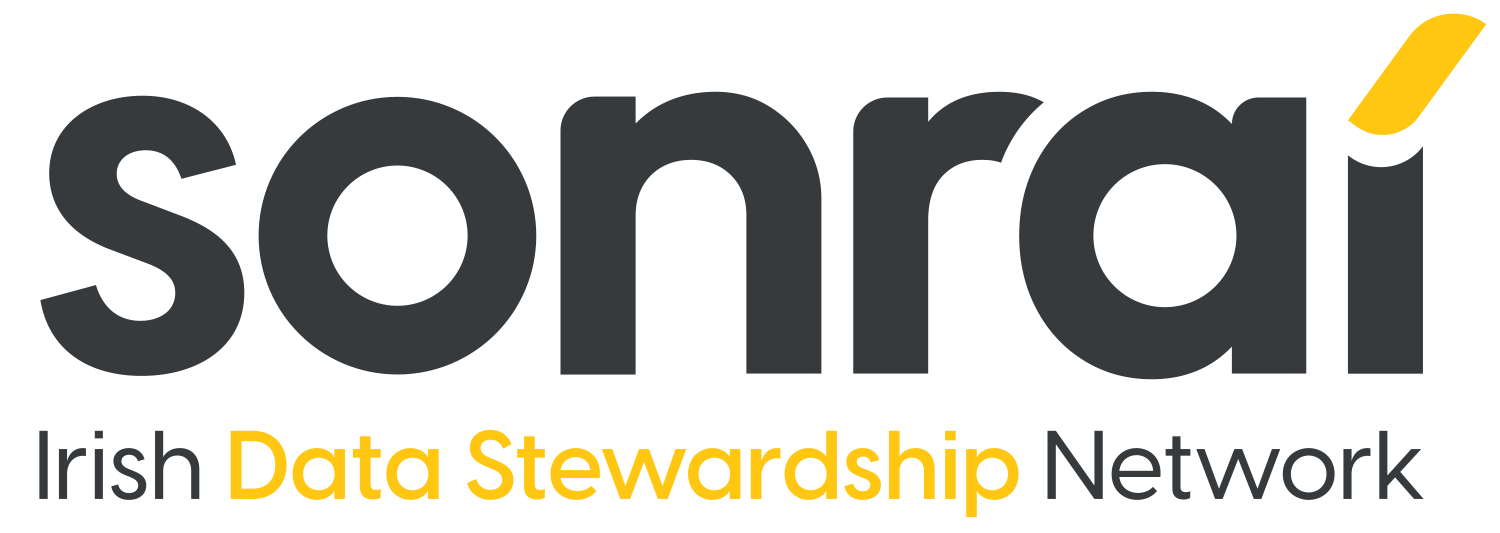Jenny O'Neill - University College Dublin
In this series of short posts we have asked colleagues and peers for their three top tips for effective data management and stewardship. Overtime we hope to build a collection of advice from across the research data ecosystem from data stewards, IT professionals, researchers and all those working with data. Next up is some excellent advice from our project partner Jenny O’Neill, Data Manager, University College Dublin Library. Jenny provides high level supports for researchers in UCD, preparing guidance on RDM related UCD policies, procedures & resources, review Data Management Plans and provides specific advice on metadata and archiving or publishing of research data.

Number 1.
Check what services are available to you in your organisation. Support services for Data Management may come from lots of parts of your organisation so it’s worth checking what supports, guidance and tools are available to you. For example, in UCD support for Data Management come from UCD Library, Research IT, UCD Research, the Office of Research Ethics and our Data Protection Officer, all working together to support researchers. We really want to help make your life easier so please come and talk to us!
Number 2.
A Data Management Plan is a really useful tool to help you anticipate any potential roadblocks in your project, to ensure that everyone in your research group is on the same page in relation to data management and to ensure you are in compliance with any funder, institutional or journal requirements.
A DMP is more than just another document you have to complete and submit to your funder, it can be a really useful exercise to help you understand exactly what dataset are being generated, what file formats, metadata and documentation you need to keep track of as you go along and to make a plan for what happens to those data after the project ends.
Number 3.
Choose a data repository or archive early in your project. If a disciplinary archive or repository exists within your discipline this is likely to be the best home for your data at the end of your project. They will have advice on appropriate file formats, metadata and documentation and will have the expertise available to best preserve your data. If no disciplinary archive or repository exists then a multidisciplinary or generalist repository is your next best bet.
By choosing your preferred archive or repository early in the project you will be able to follow these best practice guides from the start. And if your chosen repository or archive had any fees associated with depositing data you can cost these into your grant at the beginning.
If you find our 3 tips from the experts series useful or would like to submit your own tips please do get in contact via our membership page.
